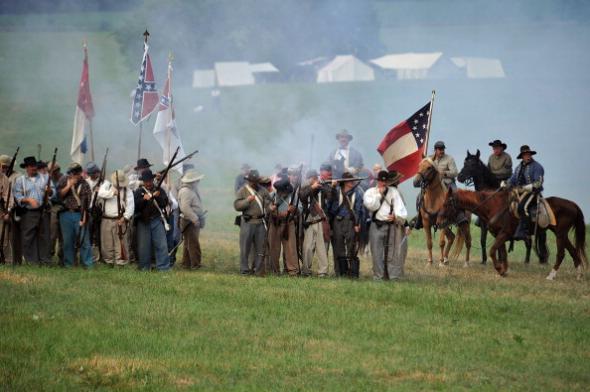On Tuesday the House of Representatives gave preliminary approval to a measure sponsored by California Democrat Jared Huffman that would prohibit the display of Confederate flags at federal cemeteries. Late Wednesday California Republican Ken Calvert proposed a competing rule meant to allow the flags to be displayed on family graves by individuals and groups on certain dedicated “Confederate Memorial Days.” Democrats are attacking Calvert’s proposal, which could come to a vote Thursday, saying its adoption would “shamefully challenge the emerging national consensus that government must not countenance such a symbol of hatred and intolerance.”
For the record, I agree with said national consensus the Confederate flag is a racist symbol with no place in modern respectable society; I don’t think it should be displayed in a position of honor by a United States government at any level. (I also don’t think a government that was attacked by a treasonous rebellion needs to sanction an official memorial day for that rebellion.)
But I also wonder about the precedent of banning what clearly amounts to a act of public speech—one that by traditional standards isn’t obscene or meant to incite imminent violence—on public property by a private citizen. If it’s illegal to put a Confederate flag on a family member’s grave on public property, should it also be illegal to carry a Confederate flag on public property? Is this really the street we want to be going down? And, given that the Supreme Court sided 8-1 with the Westboro Baptist Church on a public-property hate-speech case in 2010, would such a law even be constitutional?
